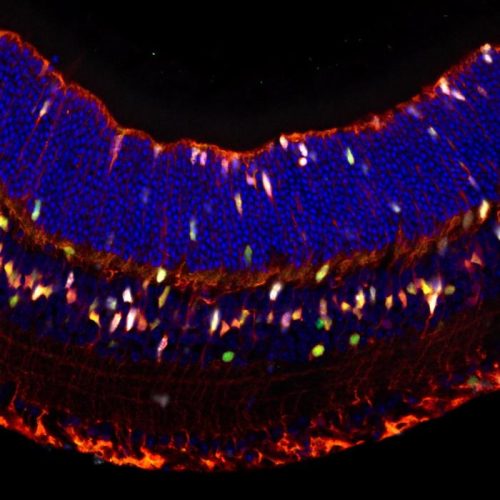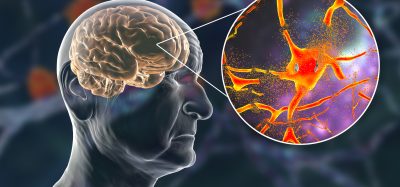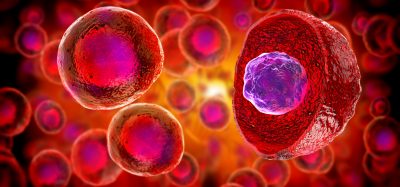Stem cell study uncovers shared genes for hearing and vision repair
Posted: 9 April 2025 | Drug Target Review | No comments yet
New research, led by USC Stem Cell scientists, has identified key genetic barriers to sensory cell regeneration in the ear and eye, paving the way for future drug therapies to restore hearing and vision.


A new study from the USC Stem Cell laboratory of Dr Ksenia Gnedeva has unveiled new genetic targets that could pave the way for future drug therapies to restore hearing and vision. The research, published in Proceedings of the National Academy of Sciences (PNAS), identifies key genetic barriers that prevent sensory cell regeneration in the mammalian ear and eye. By targeting these barriers with drug-like compounds, scientists could develop novel therapies to stimulate cell proliferation and repair damage caused by injury or disease.
The role of the Hippo pathway in regeneration
The study highlights the Hippo pathway, a group of interacting genes that act as a ‘stop growing’ signal in embryonic development. Previously, Gnedeva’s team demonstrated that this pathway prevents cell proliferation in the inner ear. The latest research extends this insight by showing that the Hippo pathway also suppresses sensory receptor regeneration in the adult ear and eye.
The study highlights the Hippo pathway, a group of interacting genes that act as a “stop growing” signal in embryonic development.
To counteract this suppression, researchers used an experimental compound designed to inhibit a key protein in the Hippo pathway – Lats1/2. In laboratory tests, this drug-like compound successfully triggered cell proliferation in supporting cells of the utricle, a sensory organ crucial for balance. However, it did not have the same effect in the organ of Corti, the primary structure responsible for hearing.
New drug targets for sensory regeneration
Further investigation revealed that a specific protein p27Kip1 acts as a genetic block preventing cell proliferation in the organ of Corti and the retina. By creating a transgenic mouse model with reduced p27Kip1 levels, the scientists discovered that inhibiting the Hippo pathway enabled supporting cell proliferation in the organ of Corti, marking a critical step towards hearing regeneration.
In the retina, the results were even more promising. Blocking the Hippo pathway stimulated the proliferation of Müller glia, a type of progenitor cell. Remarkably, some of these cells naturally converted into sensory photoreceptors and other neuronal cell types without additional manipulation. This unexpected discovery suggests that targeted therapies could potentially restore vision in degenerative eye diseases.


Müller glia (green) and their progeny (red) regenerate nerve cells and photoreceptors in a mouse retina Credit: Ksenia Gnedeva/USC
Future drug development possibilities
The identification of p27Kip1 and the Hippo pathway as key regulatory elements opens exciting avenues for future drug development. Two potential strategies could emerge from this research:
- Hippo pathway inhibitors – developing pharmaceutical compounds that block Lats1/2 to stimulate sensory cell regeneration in both the ear and eye
- p27Kip1 suppressors – designing drugs to temporarily reduce p27Kip1 levels, creating a therapeutic window for regeneration after injury.
“There have been reports that p27Kip1 levels drop following injury, so that might offer a brief window of opportunity for using a drug-like compound to inhibit the Hippo pathway and encourage regeneration in the ear and the eye,” said Gnedeva. “Alternatively, it could be possible to develop another drug-like compound to reduce p27Kip1 levels. So, our discoveries have identified potential new targets for stimulating the regeneration of both hearing and vision.”
Implications for regenerative medicine
This research represents a significant step towards clinical applications for treating hearing loss and vision impairment. With continued advancements, targeted drug therapies could potentially replace or complement existing interventions like cochlear implants and retinal prosthetics. Future studies will focus on optimising these drug candidates and testing their efficacy in larger animal models before moving to human trials.
Supported by funding from the National Institutes of Health’s National Institute on Deafness and Other Communication Disorders, this study provides a foundation for developing ground-breaking regenerative therapies that could transform the lives of millions affected by sensory impairments.
Related topics
Cell Therapy, Molecular Biology, Regenerative Medicine, Screening, Stem Cells
Related conditions
Hearing loss, Vision loss
Related organisations
Keck School of Medicine of University of Southern California (USC), National Institute of Health (NIH)
Related people
Dr Ksenia Gnedeva








